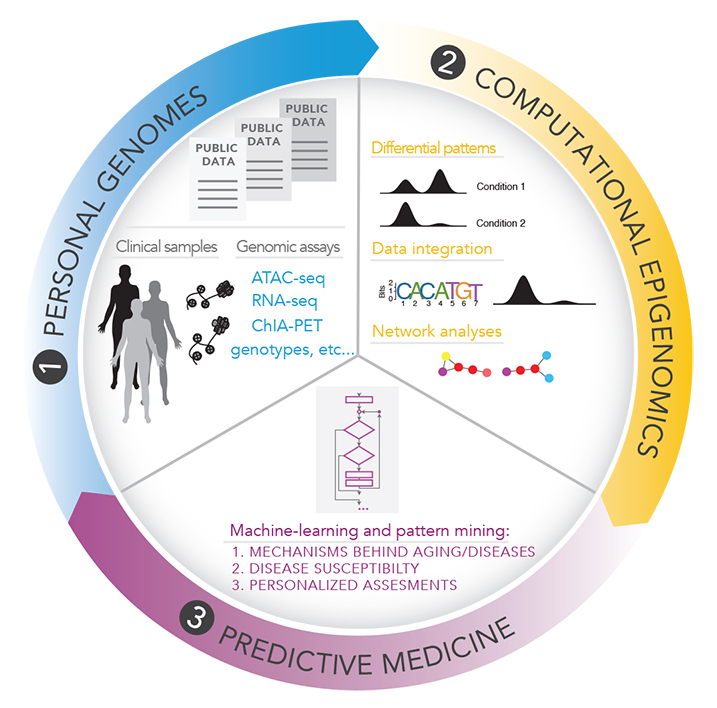What Is the UConn Pepper Center Data Resource Core?
The Data Resource Core provides help in the selection, performance and interpretation of geriatric outcome and performance measures, while also assisting with data collection, management and analysis. Content expertise is available to aid in the selection and interpretation of measures evaluating gait, mobility, affect, cognition, behavior, voiding symptoms, incontinence, body composition, bone density and self-reported quality of life.
Services
Provide consultations and assistance in the following areas:
- study design, data capture, and database management, and data analysis for clinical trials including pilot studies.
- study design, database assembly, and data analysis for population-based studies using existing databases.
- computational genomics and microbiome studies.
- selection and use of measures and measurement techniques to facilitate state of-the-art research in geriatrics and gerontology.
- compliance with data security, confidentiality regulations, and data use agreements.

Application
The success of the UConn Pepper Center relies on our ability to share our research, tools, and findings with other researchers, practitioners and the community. If you are interesting in learning more about how one or more of the cores can be of assistance.
Faculty & Staff Contacts
General Contact: 860-679-3956

Research Core Database Manager
Nicole Diggens
Email: diggens@uchc.edu
Phone: 860-679-4551
Nicole Diggens is the UConn Center on Aging’s Research Database Manager. She has over 10 years’ experience of database development, data management, and data analysis within health research, including working for University of Oxford’s Childhood Cancer Research Group and National Perinatal Epidemiology Unit and for University of Dundee’s Department of Orthopaedics and Trauma Surgery. She was the Database Manager / Data Analyst of the UK’s National Registry of Childhood Tumours (NRCT) for seven years.
Her skills include designing and programming database systems that streamline data processing, ensure data quality, and automate reports; managing data for research studies and medical registries; preparing datasets for research and international surveillance programs; and linking data across medical registries, hospital records, clinical trials, vital records, cytogenetic tests, and socioeconomic indexes.
She has a Bachelor’s degree from UConn. Her education also includes an Associate degree in Computer Science and two Master’s degrees. Prior to working in health research, she worked in education developing databases, providing IT support, and teaching computer science.
Faculty Advisors

Data Resource Core Leader
Richard Fortinsky, Ph.D.
Professor
Email: fortinsky@uchc.edu
Phone: 860-679-3956
Richard Fortinsky, Ph.D., is a professor at the University of Connecticut (UConn) School of Medicine, where he is a core faculty member at the UConn Center on Aging and holds the Health Net, Inc. Endowed Chair in Geriatrics and Gerontology. He holds academic appointments in the UConn School of Medicine’s Department of Medicine and Department of Public Health Sciences. Dr. Fortinsky has extensive experience designing and carrying out clinical trials and cohort studies in geriatrics and gerontology with colleagues from a wide range of scientific and clinical disciplines, and with healthcare delivery partners, with the goal of optimizing function and independent living for community-dwelling older adults and their families. His research has been supported by the National Institute on Aging, National Institute of Nursing Research, Patient-Centered Outcomes Institute, Alzheimer’s Association, and the Fulbright Commission. Since 2001, Dr. Fortinsky has directed the Clinical Data and Geriatric Outcomes Core at the UConn Center on Aging, which provides high quality, customized data collection design, management, and analysis services for investigators conducting aging-related clinical research UConn and at other academic and health care institutions. Dr. Fortinsky received his doctoral degree in sociology from Brown University, specializing in medical sociology and gerontology.

James Grady, Dr. P.H.
Professor
Email: jgrady@uchc.edu
Dr. James Grady received his doctoral degree in Biostatistics from the University of North Carolina, Chapel Hill in 1992 and joined the University of Texas Medical Branch faculty in 1993. He also has an M.P.H. from Yale and went to Fordham University in New York City for undergraduate. He joined the faculty at UConn Health in 2011 and is currently director of the Biostatistics Center in the Connecticut Convergence Institute and Professor of Public Health Sciences in the School of Medicine.
He has over 25 years of research experience as the lead biostatistician for numerous NIH-funded collaborative studies involving clinical and translational science in large scale population based studies and basic science. Dr. Grady has for over 15 years provided service to NIH as a grant reviewer for NIDCR and NIDDK for secondary data analysis and statistical methodology grants. He is past president of the Association of Clinical and Translational Statisticians. Educational roles include teaching a core course in the MCTR program and training Ph.D. students through graduate research internships.

Chia-Ling Kuo, Ph.D.
Senior Biostatistician
Assistant Professor
Email: kuo@uchc.edu
Chia-Ling Kuo, Ph.D., is an associate professor at the University of Connecticut (UConn) School of Medicine, where she is a core faculty member at the UConn Connecticut Convergence Institute. Her academic home is in the Department of Public Health Sciences. Dr. Kuo’s research is focused on genetics of human aging. Dr. Kuo developed methods for applications in pharmacogenetics and genome-wide association studies. She also conducted research to identify genetic variants associated with aging phenotypes, and evaluated exposure-outcome relationships using genetics-based causal inference methods. Her research has been supported by the National Institute on Aging and National Institute of Nursing Research. The topics include 1) identifying potentially modifiable exposures to improve telomere health and disease outcomes; 2) understanding the role of ApoE2 in longevity and age-related diseases and conditions using 500,000 UK Biobank participants. Dr. Kuo received her doctoral degree in biostatistics from University of Pittsburgh, specializing in genetic epidemiology and pharmacogenetics.

Julia Oh, Ph.D.
Associate Professor
Jackson Labs
Email: julia.oh@jax.org
Julia Oh has a Ph.D. in Genetics from Stanford University. Dr. Oh’s goal in her work at Jackson Labs is to develop microbiome therapeutics to treat human disease by using diverse tools like genomics and synthetic biology. Dr. Oh has extensive computational expertise in high-resolution genomic reconstructions of the microbiome, comparative genomics expertise, and strain biology, a major frontier in understanding the functional diversity of the microbiome. We complement our genomic approaches with experimental expertise in genetic manipulation and high-throughput screening of non-traditional model organisms.

Duygu Ucar, Ph.D.
Associated Professor
Jackson Labs
Email: duygu.ucar@jax.org
Duygu Ucar has a Ph.D. in Computer Science from Ohio State University. She has interdisciplinary training in computer science, epigenomics, and the biology of aging. Dr. Ucar’s work includes the development of computational models using genome datasets to study gene regulation and identify hypotheses genomic medicine.

Emil Coman, Ph.D.
Research Associate II
Email: coman@uchc.edu
Dr. Emil Coman has a Ph.D. degree in communication science from UConn, and is a PStat accredited statistician. He has been trained in emotions by his communications mentor Ross Buck, in statistical modeling (through the backdoor of SEM, Structural Equation Modeling) by Dave Kenny, and in causality by Judea Pearl, who are all still mentoring him.
He investigates a wide array of health disparities topics, helps medical students, residents and faculty with research methodology, data analytics and statistics. A recent co-authored paper published in Family Practice provides a simplified translation for medical providers of spatial methods to analyze racial/ethnic differences in health outcomes (using data on life expectation from CT census tracts), and another one in Annals of Family Medicine applies such methods to explain why minority doctors report less frequent burnout: because they serve more diverse populations. He developed a causality guide (work still in progress) and provides more technical advice on a blog.